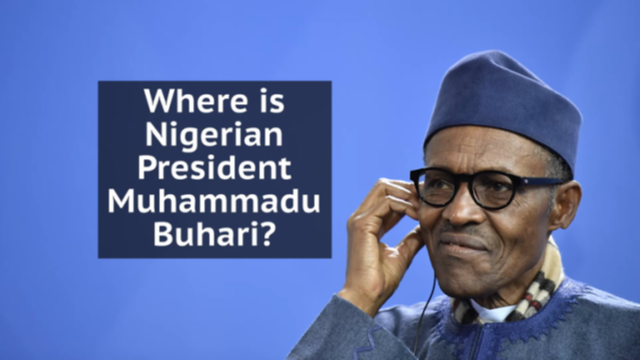Like many national leaders, Nigeria’s President Muhammadu Buhari wished his country well on the occasion of Eid al-Fitr, the end of the Muslim fasting month of Ramadan, this weekend.
In a short message aired on several media outlets, he said he hoped the “lessons of Ramadan” – virtues such as self-denial, and generosity to the poor – would endure, and appealed to his countrymen to live in peace.
It was the first time Mr Buhari’s voice has been broadcast since he left the country in early May for medical treatment for an undisclosed ailment, Nigeria’s Guardian website reports.
There have been concerns over his health, and the paper says the message should debunk rumours that he has developed a speech impairment.
But the fact that the message was delivered in Hausa, the main language of President Buhari’s native northern Nigeria, was not well received by everyone.
Most Nigerians are either Muslims or Christians, and the Muslim community comprises two of the country’s biggest ethnic groups – the Hausa and Fulani. Tensions exists between various communities, and feature calls for secession from some in the communities of the oil-rich south.
‘An outrage’
Reno Omokri, an aide to former President Goodluck Johnson, said “Ideally, the President should have spoken in English first.”
“How can a national leader address Nigerians in a sectional language?” he asked in a Facebook post. “He is not the president of only those who can speak Hausa! This is an outrage!”
Mr Buhari’s message also elicited criticism from others.
A spokesman for the Igbo community accused him of turning the country into a “banana republic”, The Daily Post website reported.
Others even questioned the authenticity of the message, saying it should be investigated to ascertain whether it truly was Mr Buhari speaking, the Punch website said.
“Away from Nigeria for almost 50 days, the first message to Nigerians is in Hausa. And you people say Buhari & his handlers are not daft?” asked one scornful commentator on Twitter.















